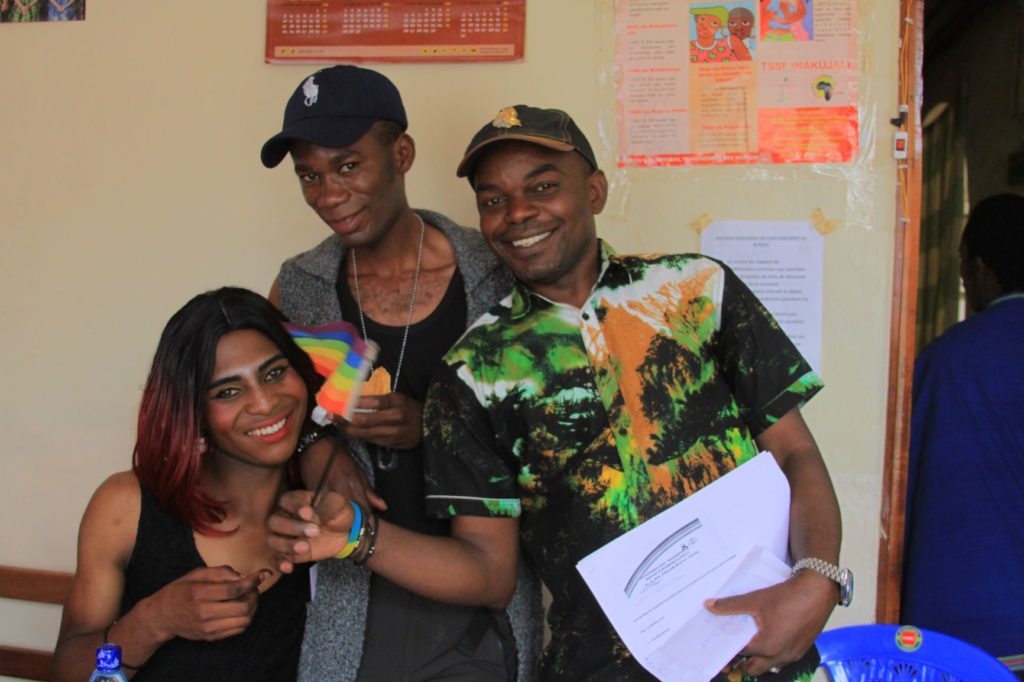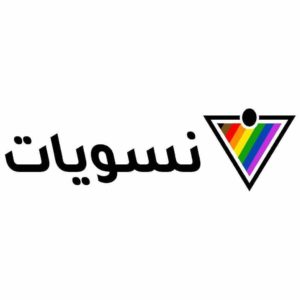This article was published more than 4 years ago.
Pride is a yearly celebration of LGBTQ identify and expression. It’s also an opportunity to recognize the incredible LGBTQ activists who courageously advocate and protest for their rights to live without hate, discrimination, or violence.
Here at the Fund, we support LGBTQ activists around the world who frequently face hostility, surveillance, and even physical threats. Their victories, which include overturning bans on same-sex relations in India and helping secure release of LGBTQ youth arrested in Uganda during the pandemic, set powerful precedents and protect lives.
Learn more about the groundbreaking work being done by three LGBTQ groups tackling bias at individual, community, and national levels and what Pride means to them:
“PRIDE for me…is the freedom to express oneself, to express one’s gender and its differences, the freedom to walk in the street without be afraid of being judged or being singled out.”
– Jérémie Safari, President, Rainbow Sunrise Mapambazuko, the Democratic Republic of Congo

Since 2010, Rainbow Sunrise Mapambazuko (which means dawn in Swahili), or RSM has been helping LGBTQ people claim their rights in the eastern region of the Democratic Republic of Congo. In past years, RSM has organized cultural days of Pride featuring testimonies from LGBTQ people, Q&As, and poetry and fashion shows.
COVID-19 has limited Pride celebrations this year. It’s also elevated the dangers that LGBTQ people face in the region: some have used COVID-19 as an excuse to elevate homophobic rhetoric, blaming the pandemic on immorality and homosexuality.
As a result, RSM’s work is more critical than ever. The Fund’s support has allowed the group to continue training LGBTQ people to document and respond to violence and other hate crimes. They work with customary chiefs in Kabar, Walungu, and Mwenga territories to educate them about the realities of LGBTQ people and address local customs that fuel bias and hatred. This education also helps families. Community members who have been ostracized or abandoned by their families can request mediations—in the past year, every LGBTQ person in Bukavu who requested mediation was reintegrated into their family.
“Pride celebrates how far we’ve come as a community and acknowledges how far we still need to go in our fight for acceptance, equality, and human rights.”
– LGBTQ activist, Babaylanes, Philippines

Babaylanes supports youth, university, and LGBTQ leaders who are working to create safe spaces and equality-based policies in the Philippines. They help LGBTQ students create associations that mentor students and alumni and advocate for both university and public policies that uphold and respect their rights.
Like most nations, the Philippines does not have a national law that protects LGBTQ people from discrimination, though one, SOGIE, has been languishing in the Senate. The Fund’s support enables Babaylanes to bolster local LGBTQ movements that are addressing policy gaps locally and nationally, including as a member of the LAGABLAB network (a coalition that aims to garner support for SOGIE). One of their new initiatives focuses on developing a central resource for research around LGBTQ issues, a key support for activists elevating the need for greater legal protections throughout the country. During COVID-19, Babaylanes also supported relief operations for local communities and fundraising activities benefiting elderly LGBTQ people.
“Pride month is a proof of the existence and strength of a community that has been and is still excluded and persecuted throughout time and in all the cultures, a community which will not stop behind anything.”
– LGBTQ activist, Nassawiyat, Morocco

Created in 2018, Nassawiyat (Feminists) works at the intersection of women’s and LGBTQ rights to change the perception of marginalized people in Morocco and promote their rights to livelihoods, health, and safety.
Their Fund-supported “artivism” approach gives LGBTQ people safe spaces to create and showcase art that reflects their individual and collective experience in a society that often shuns them. Same-sex relations is punishable by up to three years in prison according to Morocco’s penal code. But it’s more common for this discrimination to play out in daily life, such as public “outing” campaigns that threaten people’s livelihoods or barriers that prevent LGBTQ people from accessing basic services like housing. Before they can change the law, Nassawiyat has to first change people’s minds.
During the pandemic, LGBTQ people have been even more vulnerable. Emergency grants from the Fund and other donors have also helped Nassawiyat respond with direct relief to the community, who were facing increased challenges in securing shelter, healthcare, and other essentials. Their close connections within the community also allowed the group to publish a detailed report and elevate the emergency needs of LGBTQ people throughout Morocco.
Learn more about our work driving LGBTQ equality and sign up for our email newsletter with regular updates and stories about courageous activists.


